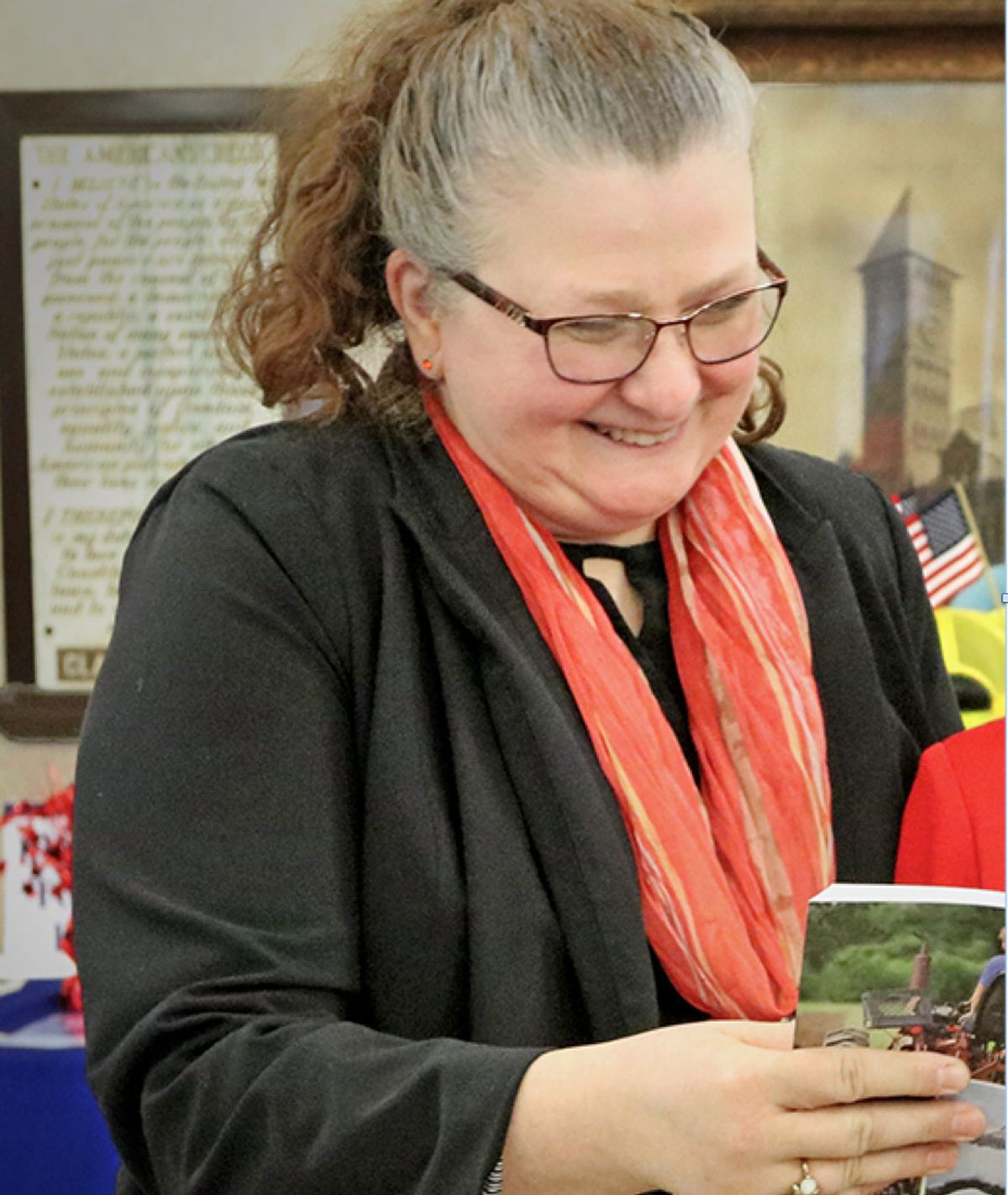Teens can take steps to ensure they’re ready to vote once they turn 18

Psychology experts who help people establish good habits say it’s best to start working on creating those habits early, which explains why many officials and others seeking to boost voter participation so broadly support the Future Voter program.
“Kids who get interested in civics at an early age tend to become active, lifelong voters,” Secretary of State Kim Wyman said of the program that went into effect July 1, 2019.
For 16- and 17-year-olds in Washington who register for the Future Voter program, signing up means they are automatically registered to vote when they turn 18.
And with support from the Office of Superintendent of Instruction, teachers help students prepare for the new responsibility. In mid-January, on Temperance and Good Citizenship Day, teachers offer a collection of special lessons and programs, some of which can be found in the Classroom Guide to Voter Registration on the Secretary of State’s website.
Young voter participation is up
Statistics indicate the program may be working. According to the secretary of state’s “2020 Report on Elections in Washington State,” nearly 73% of registered 18- to 24-year-olds voted in the 2020 election. That’s up nearly 14% from 2016, when only 59% of registered 18- to 24-year-olds voted.
True, turnout across the country – including in Washington – was higher than usual in the 2020 general election. Among people age 65 and older, participation went up 2% between the 2016 and 2020 general elections.
But the youth vote increased more than 13%. At the 2016 general election, about 60.2% of eligible 18- to 24-year-olds were registered to vote, but four years later, after the Future Voter program was in place, that number was 9% higher.
Spokane Public Schools’ Susie Gerard has seen the impact on students firsthand. Gerard, who taught at Spokane’s Lewis and Clark High School for 33 years before becoming the district’s secondary social studies coordinator, said she used to give each of her students a voter registration card on their birthday when they turned 18.
The Future Voter program broadens that opportunity to all students and makes those who sign up at 16 or 17 automatically registered at 18.
It’s become a popular program, Gerard said.
She and others who participate are careful to introduce the Future Voter program as an option.
“We’ve never made it a requirement. It’s not high pressure at all.”
And when students sign up, Gerard said she and other teachers are careful not to influence how they vote.
“We just want to influence them to vote.”
They also help students learn where to find information that aligns with their beliefs. The program has other benefits, too. For one, Gerard said, “They are a little more interested in the news.”
State Rep. Steve Bergquist, who helped craft the Future Voter legislation, said the program promotes greater accountability.
“They feel their responsibilities sooner,” he said. “It opens their eyes to the world around them and makes voting more real and relevant.”
Bergquist graduated from Western Washington University’s teaching program and taught social studies in Renton before he was elected to the Legislature in 2012.
When he started teaching, Bergquist remembers teens asking him why they should care and what civics had to do with them.
“I told them they should always care about their community and that they have a huge opportunity to get involved,” he said. “But they didn’t get it. It didn’t resonate.”
Shortly after reaching the Washington Statehouse, Bergquist began working on legislation that eventually became the Future Voter program. “It took six years after I was in office before we finally were able to get a bill past the goal post.”
In the program’s first year, more than 55,000 young people under 18 signed up, according to the Secretary of State’s Office.
“One of the best investments we can make for our future is to educate young people,” said Secretary of State Kim Wyman. “Instilling a sense of commitment to community at an earlier age better prepares them for lifelong civic participation.”
Bergquist is adamant it is beneficial to introduce civics to young people.
“When they turn 18, they have as much of a right to vote in our system. If we aren’t preparing them early, they will be less informed,” Bergquist said. “What better way is there?”
To sign up for Future Voter
A 16- or 17-year-old Washington citizen has four options for signing up to be a Future Voter:
• Online at VoteWa.gov using a driver’s license or state ID.
• Mailing in a paper Washington State Voter Registration form available on the secretary of state’s website.
• In person at your county elections office or when you get your driver’s license or ID at the Department of Licensing.
• At your school’s Temperance and Good Citizenship Day event in January.
• If a would-be Future Voter doesn’t have a driver’s license, they can complete and mail in a paper form, using the last four digits of their Social Security number.
For protection, the law exempts all information provided by minors from the Public Records Act until they turn 18, and requires the Secretary of State’s office to obtain a copy of the applicant’s driver’s license or identicard signature from the Department of Licensing.